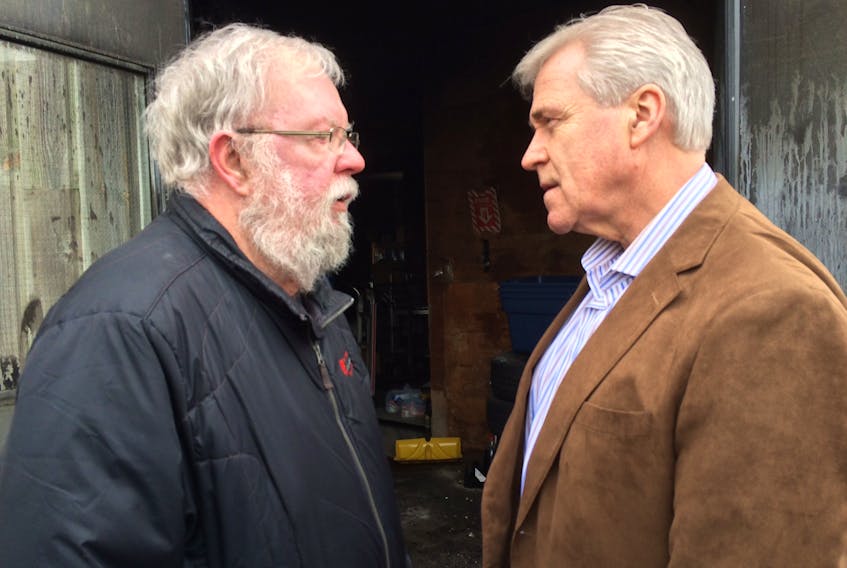ST. JOHN'S, N.L. —

You could almost see the hypocrisy oozing out of Premier Dwight Ball during his visit last week to the people who run the Community Food Sharing Association.
The fire that consumed the food bank’s inventory has prompted plentiful donations of dollars and groceries, not surprisingly, proving yet again that Newfoundlanders really are as sainted as they are depicted in “Come From Away.”
The public’s generosity is a good thing — the premier’s supposed concern, somewhat less so.
Why? Because every morning when Ball goes to work, he has the power to do something substantial to ease the poverty and hard conditions in which many people live, but he chooses not to.
For several years there has been a movement afoot in North America to increase the minimum wage to $15 per hour. This week, New Jersey became the fifth U.S. jurisdiction to adopt it, joining California, New York, Massachusetts and Washington, D.C.
The chambers of commerce and boards of trade still hold sway in most places, pushing their 18th-century economic philosophy that if the working classes get too comfortable they will become lazy and unmotivated.
Who does Ball side with? Ask yourself whether you expect within your lifetime to hear a Newfoundland Liberal leader — or Tory, for that matter — argue in favour of a $15 minimum wage.
Granted, many people oppose a $15 minimum wage, in keeping with 21st-century economic theory that allowing the underpaid to have more money will ruin the economy, but allowing more millions to fill the bank accounts of the wealthy will make them better entrepreneurs and bring bounty to their employees (see: trickle-down economics).
But I digress. The topic is food banks. Hands up, everyone who remembers — within a range of a few years — the first time they heard the phrase “food bank.”
My personal answer: 1977. Apparently, I’m off by four years. Google “first food bank in Canada” and you will discover, or be reminded, that it was established in Edmonton in 1981. How did I come up with 1977? In university, I read a lot of American news. The first food bank in the U.S. started in 1967. Google knows everything.
More importantly, try to recall your own as well as the public reaction to the establishment of food banks.
The need for food banks — the reason they exist, to feed people who cannot afford to buy enough food — remains a blight on our society, every bit as much in 2019 as in 1981.
It was, at the time, a controversial political issue. Some people deemed it evidence of our failure as a society, that the poorest among us couldn’t even afford to feed themselves.
Some people opposed the opening of food banks, on the grounds that the government was abrogating its duty to ensure all citizens could attain a reasonable standard of living.
Astute observers pointed out that the spread of food banks generally coincided with the rise of conservatism, with the election of Margaret Thatcher in the U.K. in 1979, Ronald Reagan in the U.S. in 1980 and Brian Mulroney in Canada in 1984.
Unfortunately, these critiques remain valid, even after almost four decades. The existence of food banks is an F on society’s report card.
But like a pebble in your boot while you’re hiking, we’ve gradually become accustomed to them, to the point where we now accept the need for them as normal. It is not. The need for food banks — the reason they exist, to feed people who cannot afford to buy enough food — remains a blight on our society, every bit as much in 2019 as in 1981.
No offence to the eco-jockeys, but every government’s No. 1 priority should be hungry children and their parents’ incomes, not pipelines or oilsands or carbon.
Every donation to the Community Food Sharing Association should be accompanied by the recognition that the need for food banks is proof that governments have failed the citizenry.
Strangely, Dwight Ball didn’t say anything about this last week.
Brian Jones is a desk editor at The Telegram. He can be reached at [email protected].
RELATED:









